ARLINGTON, Va. — Every year that I have lived and worked in this city I have always gone to Arlington National Cemetery to observe the Memorial Day ceremonies.
Afterwards, I wander down through the grounds, just to watch, maybe to listen, but mostly to contemplate on the sacrifices made by those brave souls whose final resting place has become hallowed ground, a literal garden of stones.
Arlington’s rolling hills are a place of extraordinary beauty, a fitting repository for the memory of the living history of the United States. Names from the history books leap off the pages as one strolls through the grounds. “Byrd, Taft, Lincoln, Kennedy, Rickover, Marshall, Pershing,” followed by the names of the thousands of soldiers, sailors, airmen, and coast-guardsman who gave their lives to secure the freedoms promised by the American Constitution.

Arlington National Cemetery, Memorial Day 2013.
In his remarks today, President Barack Obama reminded Americans that they must honor the sacrifices of their military service members, particularly as U.S. combat roles change and the nation’s involvement in Afghanistan is winding down.
Never Miss a Beat
Subscribe to our newsletter to stay ahead of the latest LGBTQ+ political news and insights.
Adding that Arlington “has always been home to men and women who are willing to give their all … to preserve and protect the land that we love,” the President praised the selflessness that “beats in the hearts” of America’s military personnel.
Obama’s words stuck with me as I walked along through the ocean of gravestones, pausing every now and then to read the names, the inscriptions, and wonder what that person or this person was like.
Scattered throughout the graves proudly marked with miniature American flags fluttering in the bright noontime sunlight, I observed families, loved ones, and friends who had come to honor their fallen.
Then I happened upon one grey haired older gentleman standing quietly in front of headstone obviously lost in his thoughts. As I tried to unobtrusively move around him, he look up at me and smiled.
I greeted him, and he greeted me back he saw my press credentials hanging from my neck and asked whom I worked for.
I told him, momentarily wondering what type of reception I’d receive as, let’s face it, the LGBTQ community still has its detractors, and to my shock, he looked back at me, with tears forming in his eyes.
“You’re gay?”
“I am,” I answered.
“Lot of changes since I was a, a kid,” he trailed off. I pointed at headstone and quietly asked if the person was a friend or a family member.
“He’s my, well was my best bud, yeah, I dunno…”
The gentleman looked stricken and it was certainly not my intention to interview him, impromptu or not. But yet I sensed that something was left hanging so I took the plunge and asked him for a few details if he didn’t mind sharing them. Turns out, that’s exactly what he wanted, to share, to have a conversation about the person whose grave we were standing over.
They had grown up in eastern Ohio, in a small rural farming community. They played football, went fishing, did farm work, and discovered that after a few failed attempts at pursuing the fairer sex, that their real romantic interests laid in each other.
By the time they had graduated from high school, the Vietnam conflict had escalated and rather than wait to get drafted, they decided to join the U.S. Marines together. They went to boot camp and not long after graduation found themselves on troop planes headed for Vietnam.
“We were lucky,” he said, “We both got assigned to the 2nd Battalion, 26th regiment.”
But good luck turned sour as their battalion found itself in the middle of one of the nastiest battles of the 1968 Tet Offensive in the battle for Khe Sanh.
Article continues below
The tears came freely and I waited, then we talked some more.
He told me that after he lost his love, “I went straight and got married,” going on to lose his wife to cancer a few years back.
He has grand kids that he says will never know the truth — he just can’t be open with them, but at the same time, never does a day go by that he doesn’t think about and mourn the loss of his friend, his partner, and the promise of what might have been.
“I was glad to see DADT end,” he told me. “At least some other couples won’t have to hide like we did.”
I thanked him for his service and his time talking with me and walked away reflecting on all of the unknown Lesbian, Gay, Bisexual, and Transgender military folk buried all around me who, like that lost soldier, suffered in silence and hid, yet still believed in a greater good that ultimately meant that they gave their lives for their country.
As the American nation celebrates this solemn holiday, let us all not forget them.



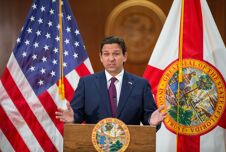

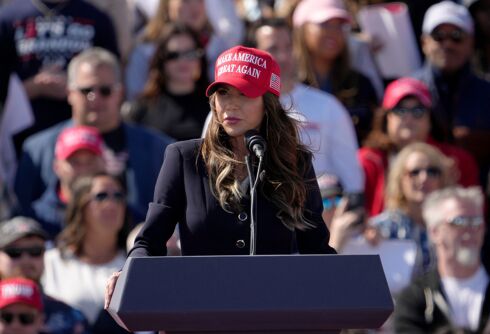


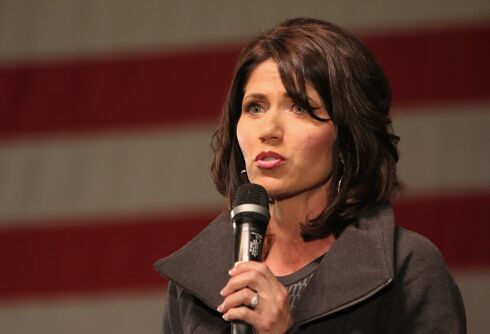
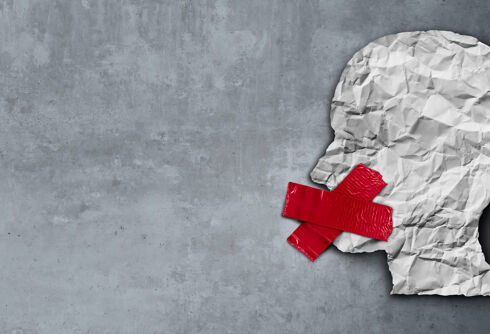
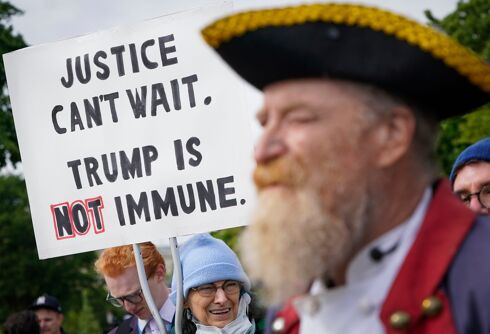



For a lost soldier…